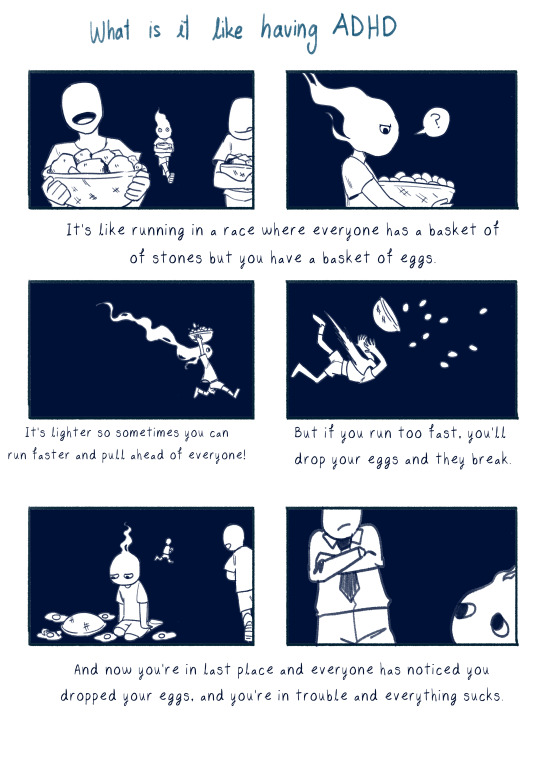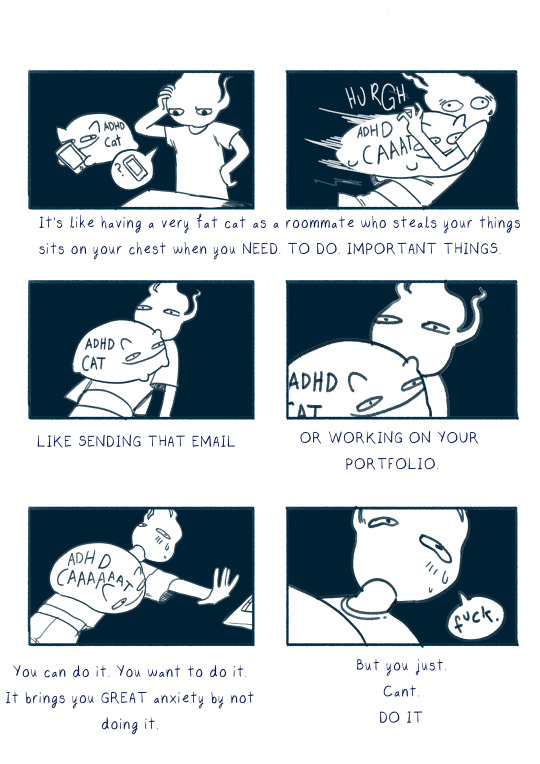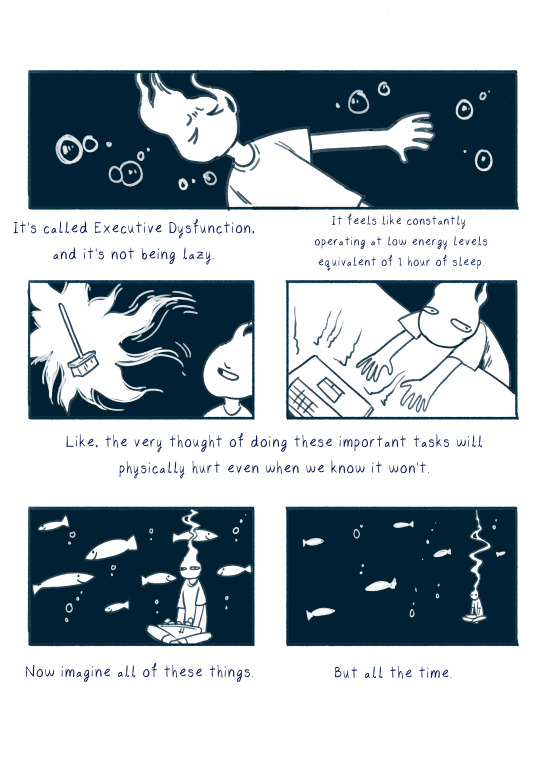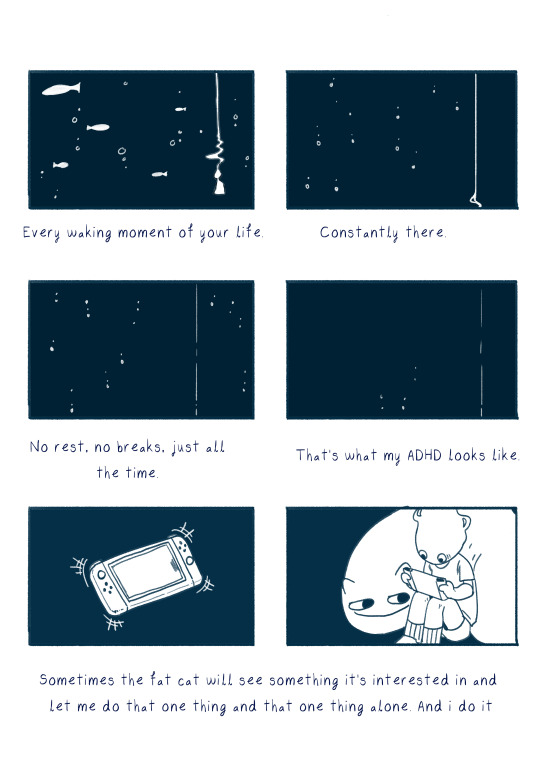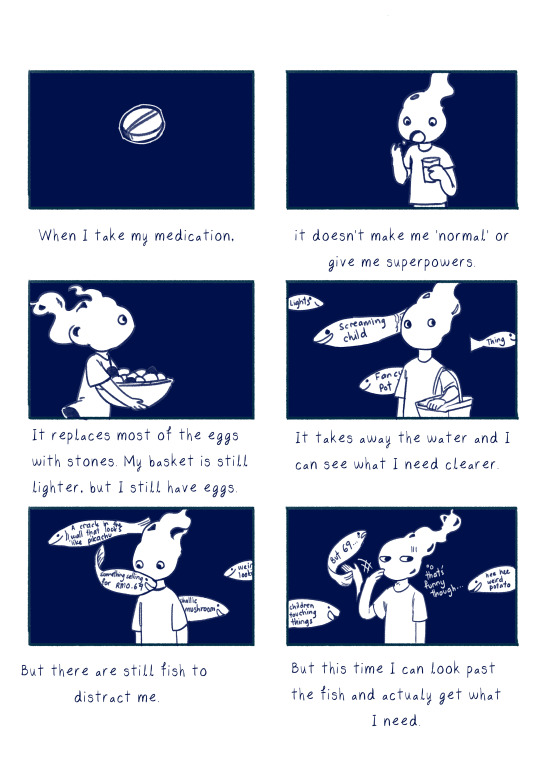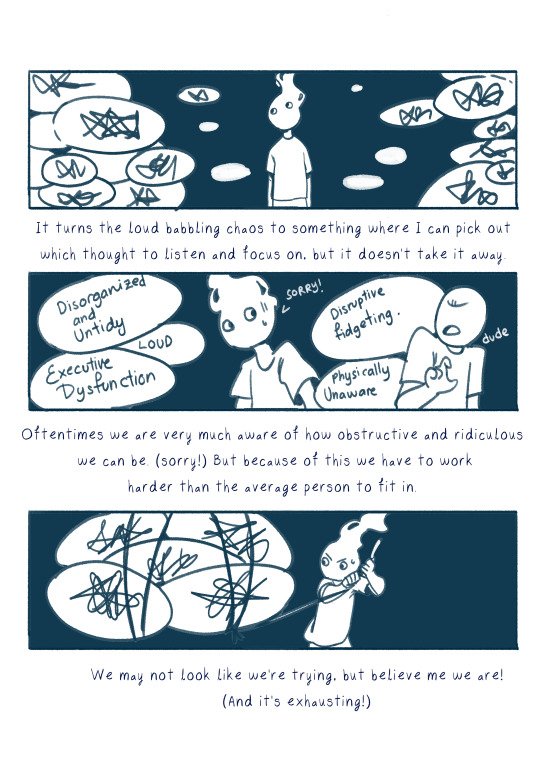professionally diagnosed DID systempro self dx | aroace inclusive | pro/neutral endo
Don't wanna be here? Send us removal request.
Text
It’s okay to think you’re too good for certain shit cuz you probably are lol
42K notes
·
View notes
Text
if system hopping was actually real someone needs to take one for the team and just hold all the altars
107 notes
·
View notes
Photo
Swerfs are anti sex worker rad feminists lmao. Swerfs are garbage, I’m not calling the girl who is going through that a swerf.
Edit: I read your comment wrong. Yeah, fuck you for being a swerf. The men and her family are the issue, not her for doing what she wants with her body. Feminists don’t bring down other women.
“Oh her family disowned her and men are distributing it” ok and how is she the problem
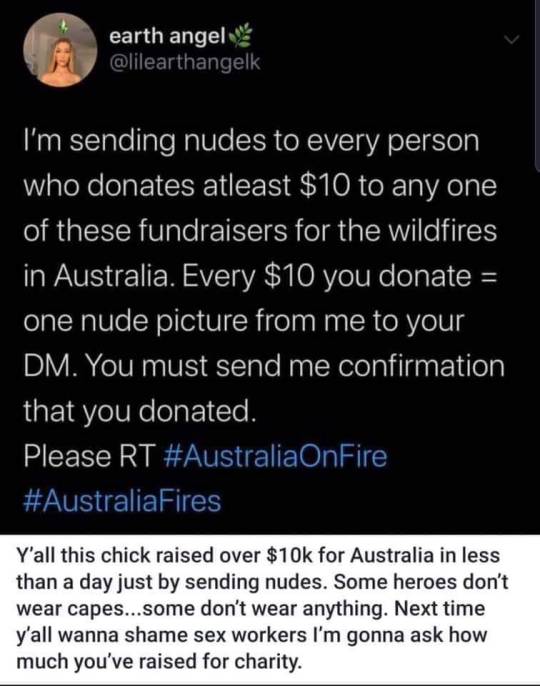
71K notes
·
View notes
Text
A New Normal: Ten Things I’ve Learned About Trauma
by Catherine Woodiwiss
1. Trauma permanently changes us.
This is the big, scary truth about trauma: there is no such thing as “getting over it.” The five stages of grief model marks universal stages in learning to accept loss, but the reality is in fact much bigger: a major life disruption leaves a new normal in its wake. There is no “back to the old me.” You are different now, full stop.
This is not a wholly negative thing. Healing from trauma can also mean finding new strength and joy. The goal of healing is not a papering-over of changes in an effort to preserve or present things as normal. It is to acknowledge and wear your new life �� warts, wisdom, and all — with courage.
2. Presence is always better than distance.
There is a curious illusion that in times of crisis people “need space.” I don’t know where this assumption originated, but in my experience it is almost always false. Trauma is a disfiguring, lonely time even when surrounded in love; to suffer through trauma alone is unbearable. Do not assume others are reaching out, showing up, or covering all the bases.
It is a much lighter burden to say, “Thanks for your love, but please go away,” than to say, “I was hurting and no one cared for me.” If someone says they need space, respect that. Otherwise, err on the side of presence.
3. Healing is seasonal, not linear.
It is true that healing happens with time. But in the recovery wilderness, emotional healing looks less like a line and more like a wobbly figure-8. It’s perfectly common to get stuck in one stage for months, only to jump to another end entirely … only to find yourself back in the same old mud again next year.
Recovery lasts a long, long time. Expect seasons.
4. Surviving trauma takes “firefighters” and “builders.” Very few people are both.
This is a tough one. In times of crisis, we want our family, partner, or dearest friends to be everything for us. But surviving trauma requires at least two types of people: the crisis team — those friends who can drop everything and jump into the fray by your side, and the reconstruction crew — those whose calm, steady care will help nudge you out the door into regaining your footing in the world. In my experience, it is extremely rare for any individual to be both a firefighter and a builder. This is one reason why trauma is a lonely experience. Even if you share suffering with others, no one else will be able to fully walk the road with you the whole way.
A hard lesson of trauma is learning to forgive and love your partner, best friend, or family even when they fail at one of these roles. Conversely, one of the deepest joys is finding both kinds of companions beside you on the journey.
5. Grieving is social, and so is healing.
For as private a pain as trauma is, for all the healing that time and self-work will bring, we are wired for contact. Just as relationships can hurt us most deeply, it is only through relationship that we can be most fully healed.
It’s not easy to know what this looks like — can I trust casual acquaintances with my hurt? If my family is the source of trauma, can they also be the source of healing? How long until this friend walks away? Does communal prayer help or trivialize?
Seeking out shelter in one another requires tremendous courage, but it is a matter of life or paralysis. One way to start is to practice giving shelter to others.
6. Do not offer platitudes or comparisons. Do not, do not, do not.
“I’m so sorry you lost your son, we lost our dog last year … ” “At least it’s not as bad as … ” “You’ll be stronger when this is over.” “God works in all things for good!”
When a loved one is suffering, we want to comfort them. We offer assurances like the ones above when we don’t know what else to say. But from the inside, these often sting as clueless, careless, or just plain false.
Trauma is terrible. What we need in the aftermath is a friend who can swallow her own discomfort and fear, sit beside us, and just let it be terrible for a while.
7. Allow those suffering to tell their own stories.
Of course, someone who has suffered trauma may say, “This made me stronger,” or “I’m lucky it’s only (x) and not (z).” That is their prerogative. There is an enormous gulf between having someone else thrust his unsolicited or misapplied silver linings onto you, and discovering hope for one’s self. The story may ultimately sound very much like “God works in all things for good,” but there will be a galaxy of disfigurement and longing and disorientation in that confession. Give the person struggling through trauma the dignity of discovering and owning for himself where, and if, hope endures.
8. Love shows up in unexpected ways.
This is a mystifying pattern after trauma, particularly for those in broad community: some near-strangers reach out, some close friends fumble to express care. It’s natural for us to weight expressions of love differently: a Hallmark card, while unsatisfying if received from a dear friend, can be deeply touching coming from an old acquaintance.
Ultimately every gesture of love, regardless of the sender, becomes a step along the way to healing. If there are beatitudes for trauma, I’d say the first is, “Blessed are those who give love to anyone in times of hurt, regardless of how recently they’ve talked or awkwardly reconnected or visited cross-country or ignored each other on the metro.” It may not look like what you’d request or expect, but there will be days when surprise love will be the sweetest.
9. Whatever doesn’t kill you …
In 2011, after a publically humiliating year, comedian Conan O’Brien gave students at Dartmouth College the following warning:
“Nietzsche famously said, ‘Whatever doesn’t kill you makes you stronger.’ … What he failed to stress is that it almost kills you.” Odd things show up after a serious loss and creep into every corner of life: insatiable anxiety in places that used to bring you joy, detachment or frustration towards your closest companions, a deep distrust of love or presence or vulnerability.
There will be days when you feel like a quivering, cowardly shell of yourself, when despair yawns as a terrible chasm, when fear paralyzes any chance for pleasure. This is just a fight that has to be won, over and over and over again.
10. … Doesn’t kill you.
Living through trauma may teach you resilience. It may help sustain you and others in times of crisis down the road. It may prompt humility. It may make for deeper seasons of joy. It may even make you stronger.
It also may not.
In the end, the hope of life after trauma is simply that you have life after trauma. The days, in their weird and varied richness, go on. So will you.
15K notes
·
View notes
Text
DID/OSDD Casually Explained: Masterpost
Here is a list of all my Casual Explanations about DID/OSDD. Please note that these are specific to the experiences of DID/OSDD and should not be attributed to anything else.
My casual explanations are a combination of academic research, personal experience, and community feedback. I am not a professional. I’m simply a person with dissociated parts, one of whom enjoys doing research. A lot.
If you would like to repost my work elsewhere, please include a link back to this post so others can see my sources!
DID/OSDD Casually Explained posts:
What Causes DID/OSDD?
How Alters/Parts are Experienced Internally
Parts In Control
Elaboration of Parts
What Is Integration?
Splits in Established Systems
Understanding Dissociated Parts (series):
Part 1: Belief and Appearance
Part 2: All About Introjects
Main Sources:
Books:
The Haunted Self: Structural Dissociation and the Treatment of Chronic Traumatization by Onno van der Hart
Coping with Trauma-Related Dissociation by Suzette Boon, Kathy Steele, and Onno van der Hart
Treating Trauma-Related Dissociation by Suzette Boon, Kathy Steele, and Onno van der Hart
Treating Adult Survivors of Childhood Emotional Abuse and Neglect: Component-Based Psychotherapy by Hopper, Grossman, Spinazzola, and Zucker
The Body Keeps the Score by Bessel van der Kolk
Links:
The Treatment of Structural Dissociation in Chronically Traumatized Patients by Janina Fisher (pdf)
International Society for the Study of Trauma and Dissociation (2011): Guidelines for Treating Dissociative Identity Disorder in Adults, Third Revision
Trauma-related Structural Dissociation of the Personality by Ellert Nijenhuis, Onno van der Hart, & Kathy Steele
PODS (Positive Outcomes for Dissociative Survivors)
http://did-research.org/ (note: I advise using did-research.org as a beginner’s resource only)
4K notes
·
View notes
Text
“Its a shame, all your talk about ableism falls on deaf ears…”
Mmmmmmm no i think it falls on the perfectly functioning abled-bodied ears that hear me just fine but don’t wanna fucking listen
786 notes
·
View notes
Text
Here's the thing about shows like South Park and Family Guy that make their money off of being edgy and offensive. They fundamentally reduce their viewers' capacity for empathy. If I found a joke funny, and you found it offensive, you're just too sensitive. This is directly related to the ride of the alt right and the election of trump. In this essay I will
179K notes
·
View notes
Text
when u stop bullying non-dissociative systems so u drop 30 followers since announcing that ur no longer anti endo
how dare I want a safe space for people amirite
3 notes
·
View notes
Text
No one is saying that you MUST have sex with trans people.
Or fat people
Or disabled people
Or dark-skinned black people
Or or or….
When activists say things like “It’s transphobic to say that you aren’t attracted to trans women,” that doesn’t translate to “You absolutely have to find a trans woman right now and bone down!” Instead, what they’re saying is “The only thing that all trans women have in common is that they’re trans women. They all look different, act different, think different, have different bodies and are at different stages of transition. There is no way that you find every single one of them unattractive. To specifically single them out as a group that you dislike is based on stereotypes and bias, not reality.”
It benefits all of us to take the time to examine our internal bias. Recognizing that prejudice and reflecting on it is a good thing. Maybe your sexual or romantic leanings will never change. That’s okay. But let’s not just brush past these things by saying “It’s a preference” when really: these thoughts are based on a culture of discrimination, stereotypes and bigotry. Labeling them as such is a reflection on that culture, not on your love life.
54K notes
·
View notes
Text
y'all will circlejerk yourself to the mysticisms of faeries and elves in european countries for centuries and take it as fact but the second native americans ask you to respect our spirituality and culture suddenly you're all aetheists
197K notes
·
View notes
Text
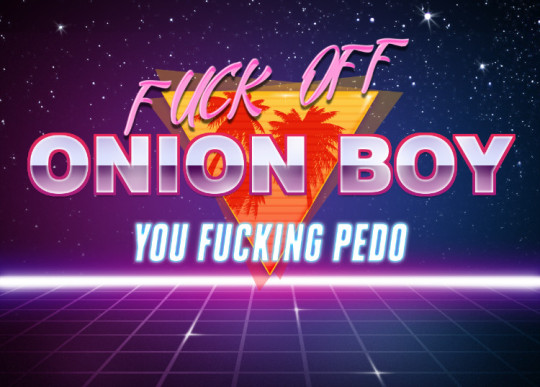
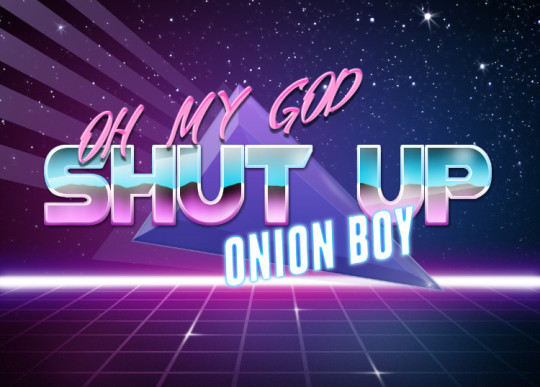
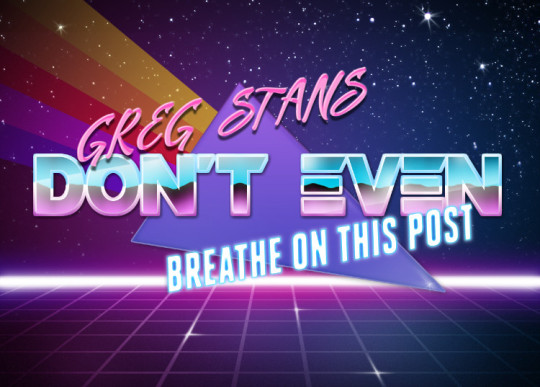
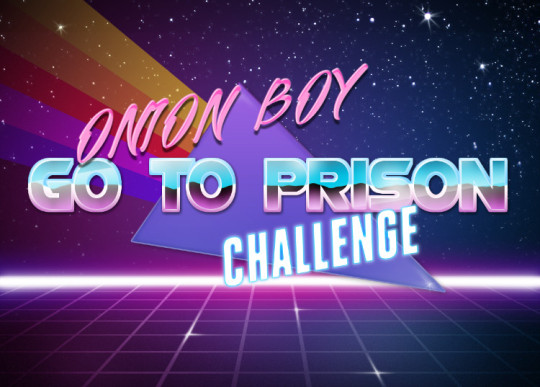
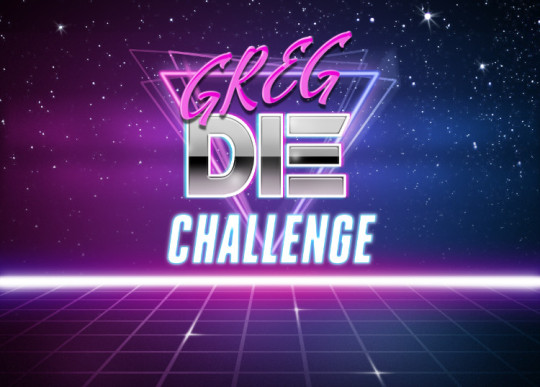
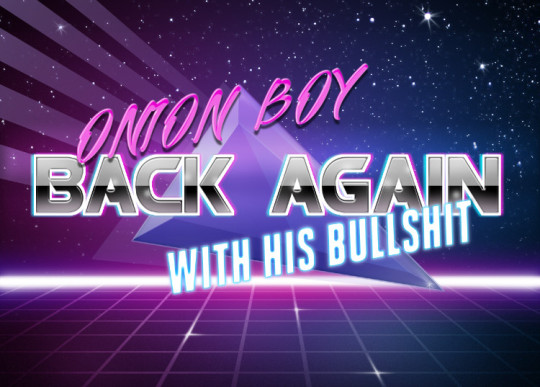
Made some Onion Boy reaction images, hope y'all like them!💕💕💕
[If you have some other ideas you can request them I'll gladly do it]
2K notes
·
View notes
Text
guys with bpd are not abusive; guys with bipolar aren’t exhausting, guys with psychosis or schizophrenia aren’t dangerous, guys with did aren’t a threat. being mentally ill doesn’t make you a bad person and mentally ill guys are still worth loving
5K notes
·
View notes
